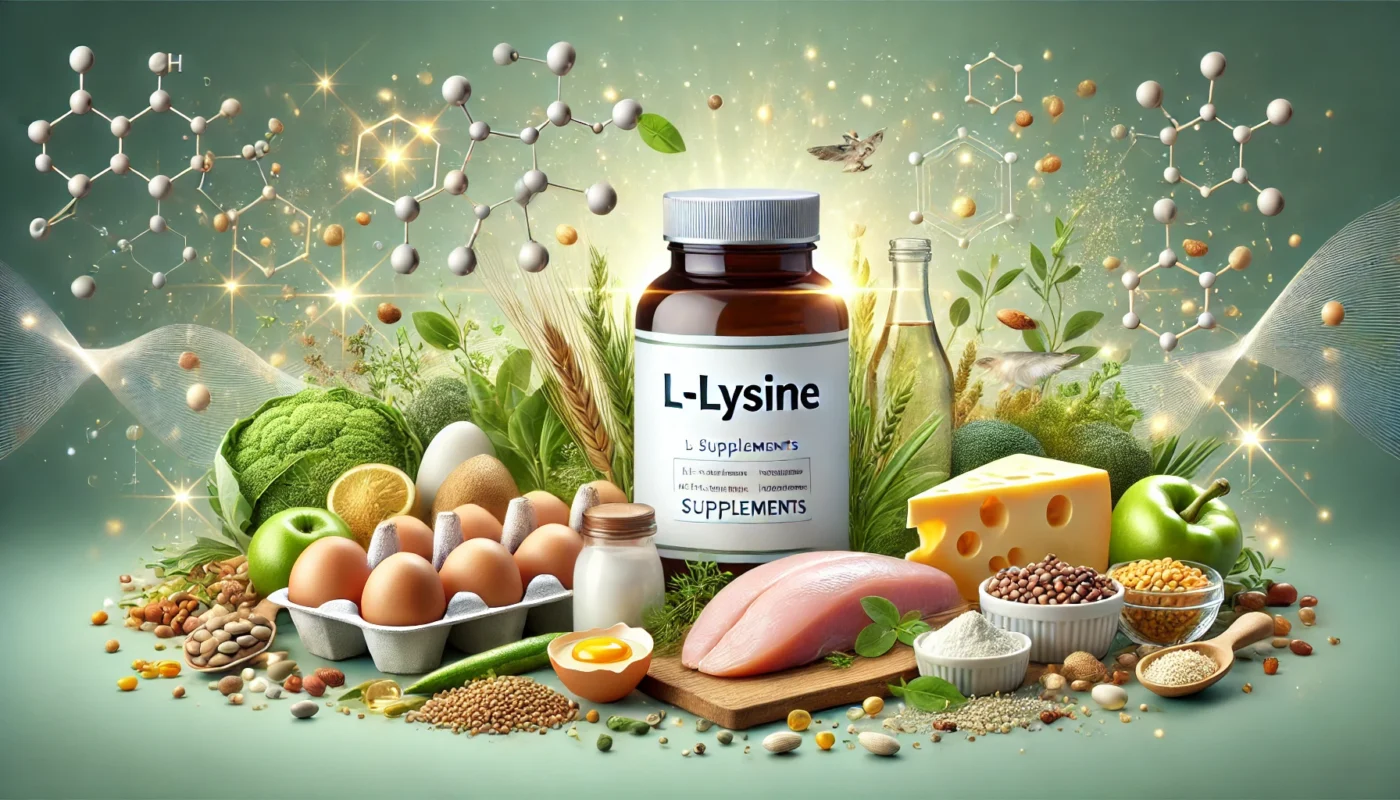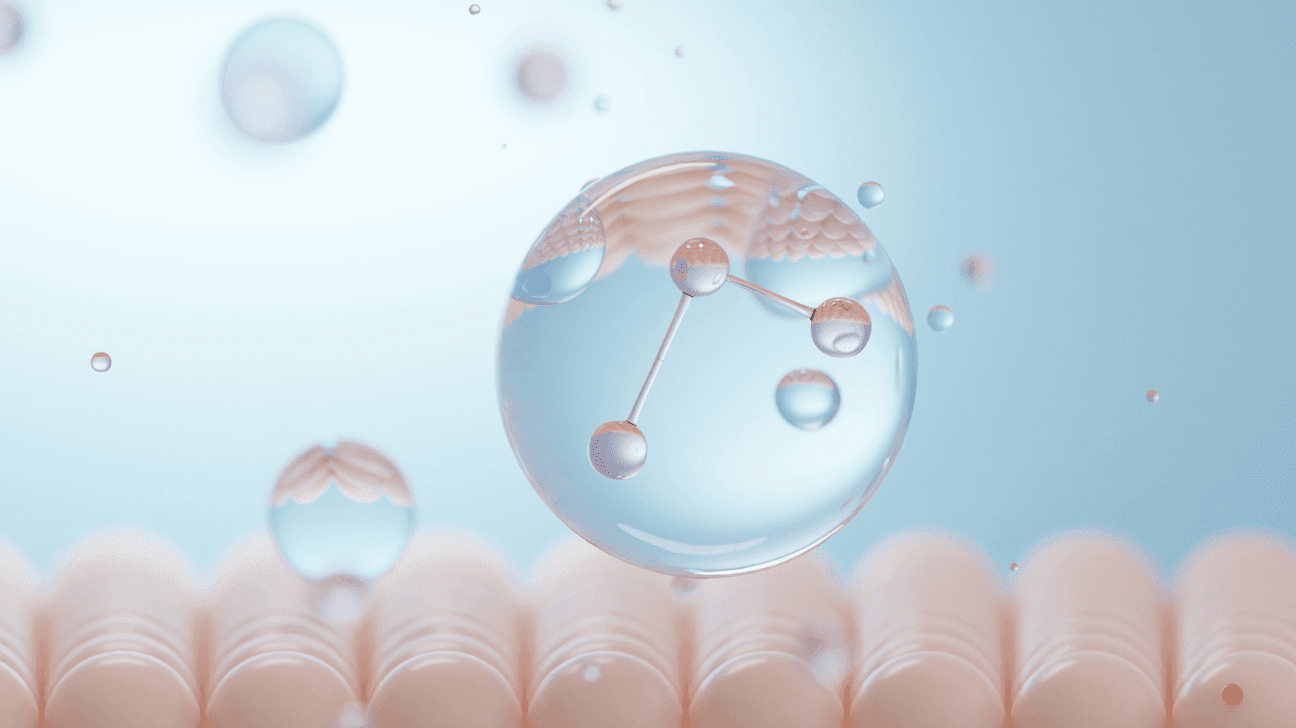As the body’s largest organ, skin plays a crucial role in protecting against environmental damage, regulating body temperature, and maintaining hydration. Over time, skin is exposed to wear and tear, including cuts, scars, and the inevitable effects of aging such as wrinkles and fine lines. While skincare products often take center stage in managing these concerns, nutrition, particularly amino acids like L-lysine, offers a powerful solution to support skin health from the inside out.
L-lysine, an essential amino acid, has gained attention for its role in promoting collagen production, accelerating wound healing, and improving skin elasticity. This article explores the science behind L-lysine’s impact on skin repair, focusing on its potential to minimize scars and wrinkles.
You May Also Like:
How L-lysine Aids in Healing Wounds and Injuries: The Science Explained
L-lysine for Women’s Health: From PMS to Menopause Support
L-lysine and Skin Repair: A Natural Solution for Scars and Wrinkles is an original (HSLHealing) article.
What is L-lysine?
L-lysine is one of nine essential amino acids, meaning it must be obtained through diet or supplements. It is a building block of proteins and plays an important role in various physiological processes, including immune function, calcium absorption, and hormone production. Importantly, L-lysine is a key precursor in the synthesis of collagen, a structural protein vital for maintaining skin strength and elasticity.
Collagen degradation, whether due to aging, injury, or environmental damage (e.g., UV radiation), leads to visible signs of skin aging, including sagging and wrinkles. L-lysine helps counteract these effects by enhancing collagen production and accelerating skin repair mechanisms.

L-lysine and Collagen Synthesis
Collagen is the most abundant protein in the body, comprising about 75% of the skin’s dry weight. Its production depends on the availability of certain amino acids, including L-lysine, which acts as a binding agent to stabilize collagen fibers.
Scientific Evidence
A study published in Amino Acids (2015) highlighted the role of L-lysine in cross-linking collagen fibrils, which is critical for wound healing and maintaining skin integrity. Researchers found that lysine supplementation increased collagen stability and improved the structural integrity of connective tissues.
Additionally, L-lysine works synergistically with vitamin C, which acts as a co-factor in collagen synthesis. A clinical trial in Dermato-Endocrinology demonstrated that supplementation with L-lysine and vitamin C improved skin hydration and reduced the appearance of fine lines over 12 weeks.

L-lysine and Wound Healing
Wound healing is a complex process involving several stages: inflammation, tissue formation, and remodeling. L-lysine plays a pivotal role in all three stages by promoting collagen synthesis and supporting cellular repair.
Accelerating Tissue Repair
A study in Journal of Investigative Dermatology found that L-lysine supplementation enhanced the migration of fibroblasts—cells responsible for producing collagen and elastin—into wound sites. This led to faster wound closure and reduced scarring.
Reducing Scar Formation
Scars result from the overproduction of collagen during the wound-healing process. While collagen is necessary, unorganized or excessive collagen can lead to raised or discolored scars. L-lysine helps regulate collagen deposition, ensuring a balanced production that minimizes scar formation.

Fighting Wrinkles and Fine Lines
Wrinkles and fine lines are hallmarks of aging caused by reduced collagen production and environmental factors such as sun exposure and pollution. L-lysine combats these effects in several ways:
- Boosting Collagen Production
As a precursor to collagen, L-lysine ensures that the skin retains its elasticity and firmness. Regular intake of L-lysine, either through diet or supplements, can help slow the development of wrinkles by maintaining collagen levels. - Supporting Skin Elasticity
A study published in Clinical, Cosmetic, and Investigational Dermatology found that amino acids, including L-lysine, improved skin elasticity in participants with signs of photoaging. The researchers noted significant improvements in skin texture and firmness after 16 weeks of supplementation. - Enhancing Skin Barrier Function
L-lysine also contributes to the synthesis of ceramides, lipids essential for maintaining the skin’s protective barrier. A strong barrier helps prevent moisture loss, reducing the appearance of fine lines caused by dehydration.
UV Damage and Oxidative Stress
Ultraviolet (UV) radiation from the sun accelerates skin aging by inducing oxidative stress, which damages collagen and elastin fibers. L-lysine helps mitigate this damage by supporting antioxidant defenses.
L-lysine and Free Radicals
Although L-lysine is not an antioxidant, it aids in the production of carnitine, a compound that reduces oxidative stress by facilitating fatty acid metabolism. A study in Antioxidants (2020) found that L-lysine supplementation reduced markers of oxidative damage in skin cells exposed to UVB radiation, suggesting a protective effect against photoaging.

L-lysine for Acne Scars
Acne scars, particularly atrophic scars, result from collagen degradation during inflammatory acne. L-lysine’s role in collagen synthesis makes it a promising addition to treatments targeting acne scars.
Clinical Insights
A randomized controlled trial in International Journal of Dermatology evaluated the effects of an amino acid-based supplement, including L-lysine, on atrophic acne scars. Participants showed a 35% improvement in scar depth and skin texture after three months, highlighting L-lysine’s reparative potential.
Dietary Sources of L-lysine
While supplements are a convenient way to boost L-lysine intake, many foods naturally contain this essential amino acid. High-lysine foods include:
- Animal-based sources: Chicken, beef, pork, eggs, and dairy products like cheese and yogurt.
- Plant-based options: Legumes (lentils, chickpeas), quinoa, soy products, and nuts (almonds, pistachios).
A balanced diet rich in these foods can help maintain adequate L-lysine levels to support skin health and overall wellness.

Supplementing with L-lysine
For individuals with specific skin concerns, such as scars or signs of aging, L-lysine supplementation may be beneficial. Standard doses range from 500 mg to 3,000 mg daily, depending on individual needs.
Combining L-lysine with Other Nutrients
L-lysine’s benefits are amplified when paired with complementary nutrients:
- Vitamin C: Enhances collagen production and skin repair.
- Zinc: Supports wound healing and reduces inflammation.
- Proline and Glycine: Other amino acids essential for collagen synthesis.
Is L-lysine Safe?
L-lysine is generally safe when taken within recommended dosages. However, excessive intake may cause mild gastrointestinal discomfort in some individuals. Those with kidney or liver conditions should consult a healthcare provider before starting supplementation.
Heal and glow—L-Lysine accelerates skin repair and boosts natural radiance—Shop Today on Amazon!

Conclusion: A Natural Ally for Skin Repair
L-lysine is a powerful yet often overlooked nutrient for promoting skin repair and combating the visible signs of aging. Its role in collagen production, wound healing, and maintaining skin elasticity makes it an essential tool for minimizing scars and wrinkles.
Whether through diet or supplementation, incorporating L-lysine into your routine can enhance skin resilience, improve texture, and slow the effects of aging. Supported by a growing body of scientific evidence, L-lysine stands out as a natural and effective solution for achieving healthier, more youthful skin.

References
- Atrophic acne scar: a process from altered metabolism of elastic fibres and collagen fibres based on transforming growth factor-β1 signalling. Retrieved from: https://pubmed.ncbi.nlm.nih.gov/30822364/
- Enhancement of lysine acetylation accelerates wound repair. Retrieved from: https://pmc.ncbi.nlm.nih.gov/articles/PMC3829946/
- Oral nutritional supplementation accelerates skin wound healing: a randomized, placebo-controlled, double-arm, crossover study. Retrieved from: https://pubmed.ncbi.nlm.nih.gov/15220599/
- The Effect of Amino Acids on Wound Healing: A Systematic Review and Meta-Analysis on Arginine and Glutamine. Retrieved from: https://pmc.ncbi.nlm.nih.gov/articles/PMC8399682/
- Importance of amino acid composition to improve skin collagen protein synthesis rates in UV-irradiated mice. Retrieved from: https://pmc.ncbi.nlm.nih.gov/articles/PMC3351609/
Important Note: The information contained in this article is for general informational purposes only, and should not be construed as health or medical advice, nor is it intended to diagnose, prevent, treat, or cure any disease or health condition. Before embarking on any diet, fitness regimen, or program of nutritional supplementation, it is advisable to consult your healthcare professional in order to determine its safety and probable efficacy in terms of your individual state of health.
Regarding Nutritional Supplements Or Other Non-Prescription Health Products: If any nutritional supplements or other non-prescription health products are mentioned in the foregoing article, any claims or statements made about them have not been evaluated by the U.S. Food and Drug Administration, and such nutritional supplements or other health products are not intended to diagnose, treat, cure, or prevent any disease.

